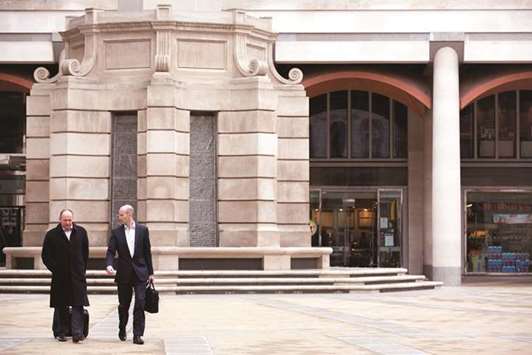The world’s major stock markets fell heavily yesterday as sentiment was rocked by fresh trade war fears as US President Donald Trump unveiled tariffs on at least $50bn on Chinese imports.
Saying it would be the “first of many” trade actions, Trump signed the order that also will look at restrictions on Chinese investment in the US.
“We have a tremendous intellectual property theft situation going on,” Trump said.
London’s FTSE 100 index shed 1.2% at 6,952.59 points, while in Paris the CAC 40 dropped 1.4% at 5,167.21 points and the DAX 30 in Frankfurt fell 1.7% at 12,100.08 points. The EURO STOXX 50 shed 1.7% at 3,342.27 points.
New York’s blue-chip Dow was down 1.4% in midday trading before Trump made the formal announcement.
Europe’s main indices closed the day with similar losses.
“Dealers are worried this could be the first shot fired in a trade war between the two largest economies in the world,” said market analyst David Madden at CMC Markets UK.
The move will likely further strain tensions with Beijing after the White House unveiled controversial tariffs on imports of steel and aluminium, which sparked fury from world leaders.
China has vowed to respond with “necessary measures to resolutely defend its legitimate rights and interests”.
Meanwhile a senior US official Trump would grant Europe and half a dozen other countries a last-minute exemption from punishing metals tariffs, although European leaders were waiting for the official announcement by a US president known to make last minute changes.
China and Russia were not among the countries named.
Meanwhile, signs that the Federal Reserve will hasten its rate hike pace next year also weighed down equity markets, as did a perceived tighter bias at the Bank of England, traders said.
On Wednesday, the Federal Reserve raised the key lending rate for the first time this year, citing a stronger outlook for economic growth, and hinted at a slightly more aggressive pace for hikes in 2019.
Higher interest rates tend to weigh on stock markets because they increase loan repayments and therefore tend to bite into the bottom line — and reduce consumers’ disposable incomes.
The Bank of England left its leading interest rates unchanged, but two of the nine monetary policy committee members voted against that decision, which pointed to “a slightly more hawkish tone”, Accendo’s van Dulken said.
Earlier, the data monitoring firm Markit reported that growth in eurozone business activity was at its slowest rate for over a year in March in its purchasing managers’ index (PMI), pointing to the economic recovery in the single currency area’s losing momentum.

Pedestrians walk in front of the London Stock Exchange headquarters. The FTSE 100 index shed 1.2% at 6,952.59 points yesterday.
